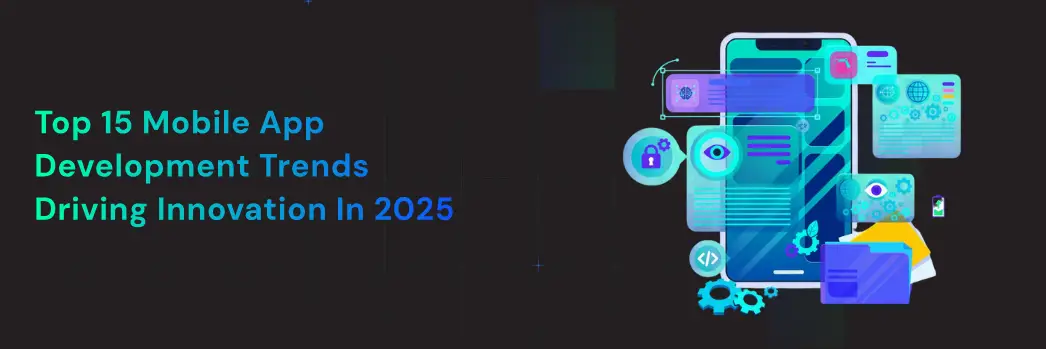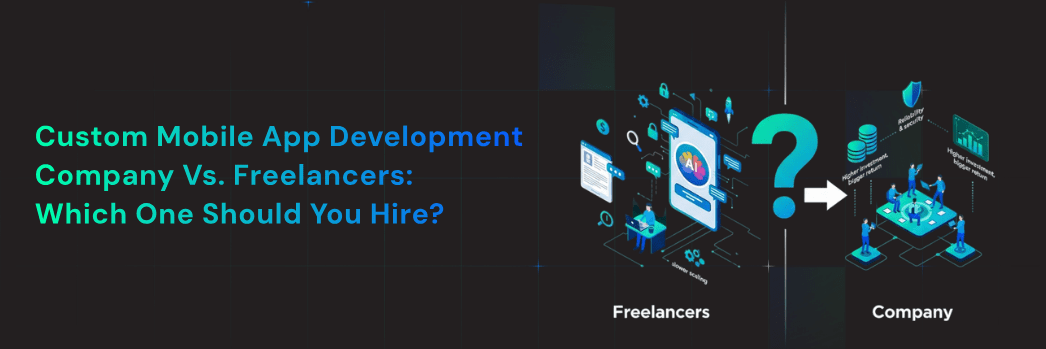Technological developments and changing customer expectations will define mobile app development in 2025. For developers and companies to produce applications that are impactful and prepared for the future, they must keep up with current developments. The top 15 trends influencing the industry this year are examined in detail here.
Artificial Intelligence (AI) is at the forefront of mobile app development, enabling apps to deliver personalized experiences by analyzing user behavior and preferences. This leads to more intuitive interfaces and content recommendations, enhancing user engagement and satisfaction.
The global expansion of 5G networks is revolutionizing mobile app capabilities. With faster data speeds and lower latency, apps can offer real-time features like high-quality video streaming, augmented reality (AR), and seamless cloud-based applications, providing users with enhanced experiences.
AR and VR technologies are becoming integral to mobile apps, offering immersive experiences in gaming, education, and retail. These technologies enhance user interaction and engagement, allowing users to visualize products and environments in innovative ways.
Low-code and no-code platforms are democratizing app development by enabling individuals without extensive coding knowledge to create functional applications. This accelerates the development process and reduces costs, allowing businesses to bring products to market more swiftly.
The integration of IoT with mobile apps allows users to control and monitor smart devices remotely. This trend is enhancing convenience and efficiency in daily life, with applications spanning from home automation to healthcare monitoring.
Mobile apps are increasingly integrating with wearable devices, providing users with real-time health data, notifications, and seamless connectivity. This trend is particularly prominent in fitness and health-related applications, offering users personalized insights and recommendations.
Blockchain and Web3 technologies are gaining traction in mobile app development, offering enhanced security, transparency, and user control. These technologies are particularly relevant in sectors like finance, where secure transactions and data integrity are paramount.
Voice assistants and chatbots are becoming more prevalent in mobile apps, offering hands-free navigation and enhanced accessibility. This trend is improving user experience and broadening app usability, making interactions more natural and efficient.
Predictive analytics is enabling mobile apps to anticipate user needs and behaviors, allowing for proactive service delivery. By analyzing historical data, apps can offer personalized recommendations and anticipate user actions, enhancing overall satisfaction.
Super apps are all-in-one platforms that integrate multiple services, such as messaging, payments, and shopping, into a single application. This trend is streamlining user experiences and increasing user retention by providing a comprehensive suite of services within one app.
With the increasing amount of personal data being handled by apps, security remains a top priority. Developers are implementing advanced encryption methods, biometric authentication, and secure data storage solutions to protect user information and build trust.
Frameworks like Flutter and React Native are enabling developers to write code once and deploy it across multiple platforms, reducing development time and costs. This approach ensures a consistent user experience across different devices and operating systems.
Incorporating motion design and microinteractions into mobile apps enhances user engagement by providing visual feedback and guiding users through tasks. These subtle animations improve usability and make interactions more enjoyable.
There is a growing emphasis on sustainable and ethical app development practices. Developers are focusing on energy-efficient coding, ethical data usage, and creating apps that promote social good, aligning with user values and environmental considerations.
Generative AI is transforming the app development process by automating tasks such as code generation, design, and content creation. This technology accelerates development cycles and allows for more innovative and dynamic applications.

Innovation, new technologies, and changing consumer expectations will fuel mobile app development in 2025. These trends are changing the way apps are created, developed, and used, from 5G connection and AI-powered personalization to AR/VR experiences, IoT integration, and generative AI.
For businesses and developers, staying updated with these trends is crucial to delivering apps that are not only visually appealing but also highly functional, secure, and user-centric. Embracing these innovations ensures your applications remain competitive, provide exceptional user experiences, and meet the growing demands of a digital-savvy audience.
- What are the most important mobile app trends for 2025?
Key trends include AI-powered personalization, 5G connectivity, AR/VR integration, low-code/no-code development, IoT integration, and enhanced app security. - How does AI improve mobile app experiences?
AI allows apps to analyze user behavior and preferences, delivering personalized recommendations, smarter interfaces, and automated features that enhance engagement. - What is a “super app,” and why is it trending?
A super app combines multiple services (messaging, shopping, payments, etc.) into one platform, improving user convenience and increasing retention. - Why is cross-platform development gaining popularity?
Frameworks like Flutter and React Native reduce development time and costs by enabling apps to run on both Android and iOS with a single codebase. - How important is app security in 2025?
Extremely important. With increasing personal data usage, apps must implement encryption, secure storage, and biometric authentication to protect users.
Search
Recent Post
- Custom Mobile App Development Company vs. Freelancers: Which One Should You Hire?
- iOS & Android App Development Best Practices for Modern Businesses
- Future of Mobile Apps: Role of a Mobile App Development Company
- How Page Speed Affects Ecommerce Sales in USA
- Angular vs React: Which Framework Performs Better?
- Ecommerce Website Features That Actually Increase Sales
Categories
- Blog (57)
- It Solution (1)
- Mobile App (14)
- option1 (1)
- option2 (1)
- UX Design (1)
- WordPress (2)



